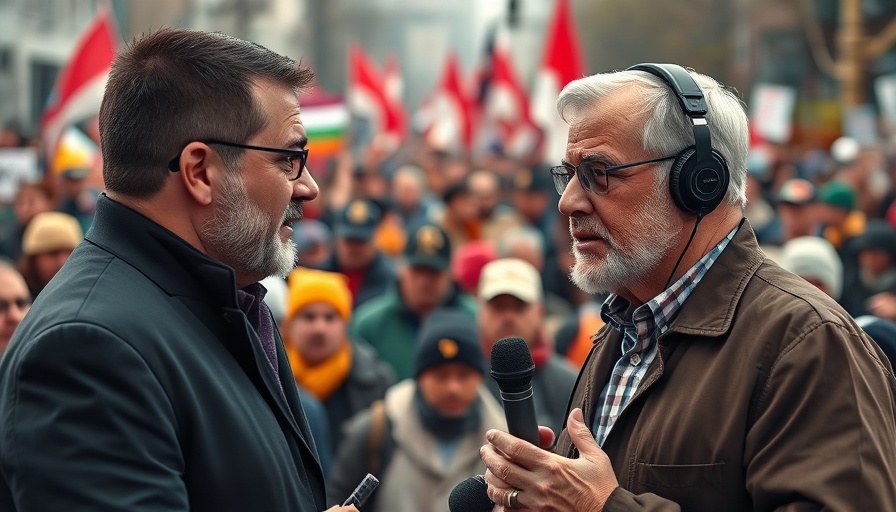
Understanding Antifa: The New Face of Organized Terrorism
In our rapidly evolving political landscape, the term "Antifa" has become symbolic of a broader societal conflict. Detractors and supporters alike have attempted to frame what Antifa is, but the reality is much more complex than mere ideological rows. A recent video discussion, titled They Need to Be Crushed, dives deep into the often-overlooked layers of organization and ideology within this group, providing key insights that are crucial for understanding current events.
In They Need to Be Crushed, the discussion dives into the complex issue of whether Antifa should be classified as a terrorist organization, prompting further analysis and exploration of its implications.
The Myth of Disorganization in Anarchist Groups
Contrary to popular belief, anarchists are not as disorganized as some might think. In fact, the video remarks that thousands of activists are actively resisting proto-fascist movements, a claim showing that Antifa operates with discernible structure and tactics. The stereotype of anarchists as disjointed is outdated; organizations like Antifa possess membership and operational frameworks akin to those found in traditional political movements.
The Financial Backbone: Resources and Legal Support
The video highlights that Antifa has significant backing, which includes both financial resources and legal aid. This isn’t just grassroots fundraising; there are organized channels that provide legal representation for arrested members. Observers at far-left riots, often mistakenly identified as independent legal aids, are actually operatives from Antifa's legal factions, which raises critical questions about their actual framework and operation.
Implications for Democracy and Law Enforcement
Antifa’s activities have sparked debates over the nature of political violence and its place in our democracy. Notably, the classification of Antifa as a terrorist organization is a crucial discussion point raised by the video. With law enforcement and government officials grappling with how to handle groups that operate under the guise of protest, the stakes for our democratic freedoms—such as the right to protest—are higher than ever. The video poses a poignant question: What does it mean for a society when a group can mobilize members to incite violence yet remain largely unclassified under terrorism laws?
As conservatives, we must analyze our understanding of such groups and engage in discussions that uphold the law while protecting our freedoms. This isn’t merely about labeling; it’s about evolving our legal frameworks to better serve the realities of contemporary activism.
To stay informed about these ongoing discussions and how they impact our society and democracy, consider subscribing to reliable news sources that promote balanced perspectives. Knowledge is power, and understanding opposing views enriches our dialogue.
 Add Row
Add Row  Add
Add 




Write A Comment